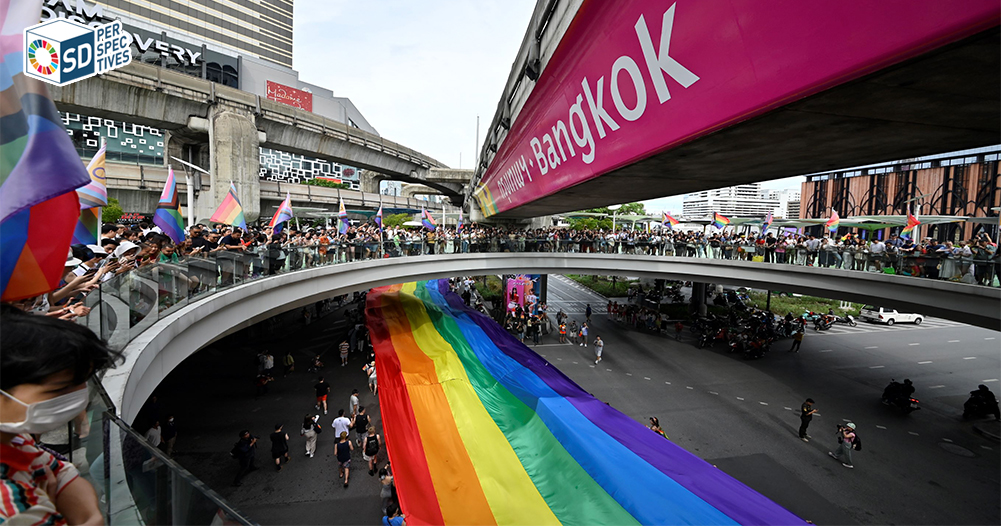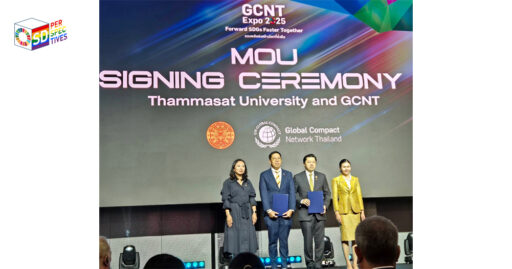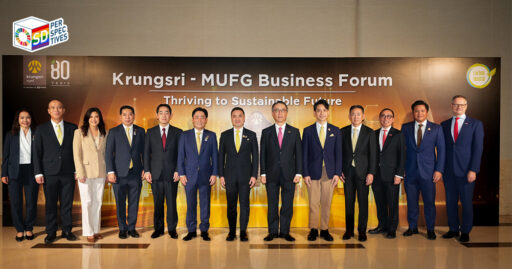August 3,2025…At the GCNT Expo 2025, there was a seminar titled “Inclusivity and Equality in Perspective: Exploring LGBTQ+ Rights in Korea, Japan, and Thailand” which was organised by the Faculty of Humanities and Social Sciences, Suan Sunandha Rajabhat University
By Jasmine Fairhurst
The speakers consisted of Mr. Inhyuk Suh (lecturer), Ms. Mei Haruna (lecturer), Mr. Pann Manop (Business English major, 4th year student) and Mr. Smith Chankaew (Business English, major 4th year student).
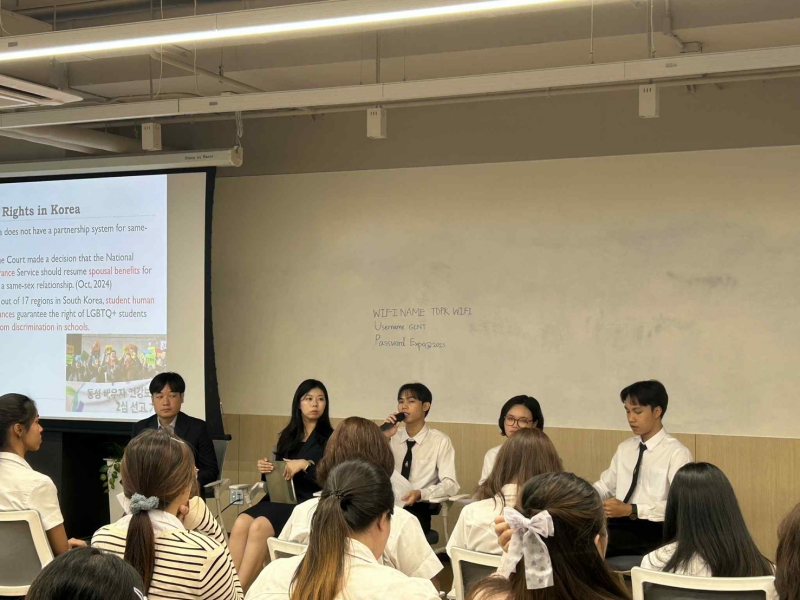
Mindset
In South Korea there have been people protesting in favour of LGBTQ+ rights. It was emphasised that participation at these protests was crucial in order to prove to those who are in opposition that there are many who stand with the LGBTQ+ community. A lack of people showing up to such events could provide a misinterpreted victory to opposition supporters if they witness decreasing attendances at these LGBTQ+ protests. Japan is the only member of G7 that has not yet legally recognised same sex marriage, but there has been much more vocalisation of such matters publicly and politically in the past few years. Recently there has been a growing number of LGBTQ+ allies in all three countries with Korea mentioning strong support from more women than men and Japan has acknowledged a shifting mindset within the older generations. Thailand however stands ahead and sheds light on how they have achieved such success, this can be seen clearly in the legalisation of same sex marriage while Korea and Japan has not yet achieved this.
Thailand has a phrase known as “mai pen rai” which can be translated to having a somewhat similar meaning to “never mind,” “it’s Okay“. However, its meaning goes deeper often conveying a sense of “no worries” or a general attitude of acceptance. With this being a common phrase this has led to a calmer and more content society. This along with the visibility of LGBTQ+ topics displayed in artistic forms such as TV shows and cabarets like the infamous “Tiffany’s Show” in Pattaya has helped integrate this acceptance as part of the norm.

1.THAI
2.Eng
The commonality of ladyboys and tv characters and musicians who have openly declared their sexuality publicly have greatly enabled these rapid advances in acceptance of the LGBTQ+ communities. As Thailand has not tried to hide or discourage the LGBTQ+ communities they were regarded as less of a shock and accepted. This assisted in a much smoother development to changing laws compared to South Korea and Japan. With tourism creating a large income for Thailand it proves productive to be LGBTQ+ friendly both economically and culturally. Encouraging Thai citizens to be exposed to such diversity keeping their population aware of the progression that is happening elsewhere. Thai mythology helps further this acceptance with gender fluid characters and non-binary characters appearing in their ancient stories proving to them that they are not breaking away from their culture and roots by accepting this.
Religion
Many Thai people follow Buddhism with the core rules being no killing, no stealing, no sexual misconduct, no lying and no addiction to intoxicating substances. With this being the foundation of the religion, it does not dictate who you are allowed to love, leaving much room for freedom and interpretation with many topics. However neighbouring countries of Thailand who also follow Buddhism are still not as developed in LGBTQ+ aspects which proves that there are many factors influencing this which adds to the complexity. Some believe this is down to a more conservative mindset and structure in places like Cambodia and Myanmar. In Japan the common religions are Shinto and Buddhism but despite this their culture is often regarded as stricter given Shinto’s deep ties with Japanese cultural norms. This leaves them more prone to follow what is seen as a more traditional path in the hopes to gain the acceptance of others. In South Korea around half the population classifies themselves as having no religion leaving the other half predominantly consisting of Christians and Buddhists. There are different branches of Christianity such as Catholicism and Protestantism and South Korea has found that Catholics tend to be more accepting compared to Protestants. Many people blame the lack of LGBTQ+ acceptance on religion and though it is a key factor it is not the only reason and other determiners should not be overlooked.
Culture
Due to cultural changes that have often occurred from external influences this has made certain topics such as that of LGBTQ+ matters more debated but also more open. Pushing forward these discussions has led to an improved but still flawed outcome. The development of LGBTQ+ television shows has made changes to all three countries, turning what we see in fiction into reality. This method seems to be effective as we’re often able to empathise with fictional characters leading us to gradually accept the incorporation of this element into our reality too.
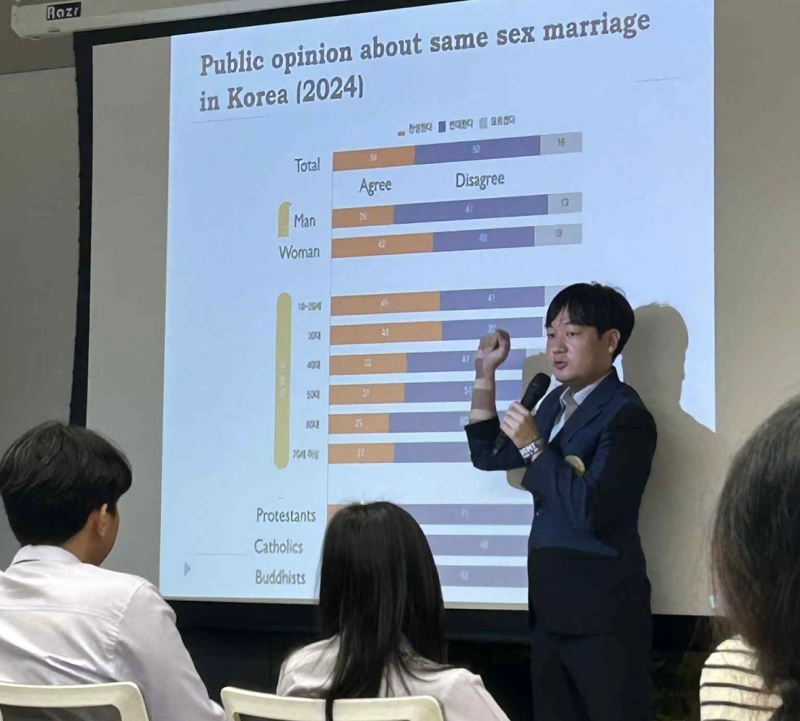
In South Korea some supporters of the LGBTQ+ community are afraid of transgender women using female bathrooms due to the fear of hidden cameras being placed within the stalls. There have been cases of men pretending to be transgender women in order to gain access to place cameras. In Japan there is also a fear of female only spaces being disrupted which could leave people using these spaces subjected to harm from those who pretend to be women. Due to these issues raised it is essential that concerns are urgently investigated to help alleviate and address the concerns raised.
Future improvements will require citizens of South Korea and Japan to speak out even more and advocate for change.

